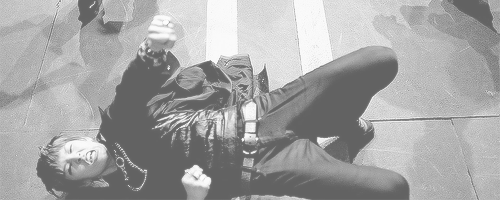
♫ We In Literacy Class ♬
Wednesday, 27 March 2013 ? 0♥Inform Me♥ ?
From
In front (Left): Farahaina, Shahirah, Umie Nadia
From
Back (Left) : Suhana, Nahzatul (Me),
Syuhada, Shafawati, Emilia
♫ My First Words in this Blog ♬
? 0♥Inform Me♥ ?
✌ Hye? Anyeonghaseyo! My Name is Nahzatul Nadiah bt
Zakaria! Ok, this is my first post! This blog for subject Introduction of
Literacy. Before this I already have a blog for Introduction of Information
Technology! My lecturer for this subject is Miss Asna. She's very cute just
like Miss Nisha. And this is my first week in semester 2 study about Literacy.
Miss Asna tell Us about what is Literacy and why we need learn for this
subject! I dont wanna say this subject hard because like before this I say IT
is really hard but after I study that subject, that not really hard just like I
think before this. So, for this week we just have one class, and we will
continue our class next week! So, that All! I hope this semester I can
study more harder and seriously not just like in semester 1.
♫ Literacy & Big 6 - Week 1♬
? 0♥Inform Me♥ ?
Topic 1 : Introducting About Literacy & Big 6
This week. I
had learned about What does literacy mean?. This topic about, why we should
learn this course and why this topic important in our daily life. There are 6
type for Information Literacy. Library, Media, Computer, Internet, Critical
Thingking & Research Literacy. Literacy also is a framework for silving
problems. After that, I had learn about Big 6. Big 6 is a process model to how
people of all ages solve an information problem. There are 6 step;

We also must
selecting the most useful resources. Example for resources are print (Book,
newpaper cte.), online ( Google, Bronze etc.) & Other ( People, Media etc.
). So, after I learned this topic now I already understand what is information
Literacy and 6 Steps in Big 6.
♫ Appropriate Tools - Week 2 ♬
? 0♥Inform Me♥ ?
Topic 2 : Describe appropriate tools & search stratrategies
to find information
This week, I learned about Primary,
secondary & tertiary sources. Before I learned about this topic I don’t
understand what is primary, secondary & tertiary sources. But, after that I
already understand what that all means. J
Primary Sources means original
document (first hand Information). Also they are written after the fact. Next
is about secondary sources, secondary sources usually interpret primary sources
( second hand Information). They usually do a examination & researchers
again about what they found or know from primary sources. Usually in form of
published works are journal article, books & radio and TV documentaries.
Lastly, Tertiary sources. Tertiary sources is collection of primary &
secondary sources, includes most types of references. There are example for
primary, secondary & tertiary sources:


Biography also secondary sources.
Biography is when you write about another person life. And Autobiography is
when you write about your own life.
Example for tertiary sources are bibliographies of bibliography,
Directories if directories & Guides to the literature.



And after that we learn about DCC
& LCC. DCC is Dewey Decimal Classification. They only number. And LCC is
Library of Congress Classification. They have alphabet and number. From this
topic I also know what is the function OPAC (Online Public Access Catalog) use
in my university library . J
♫ Search Tools - Week 3 ♬
? 0♥Inform Me♥ ?
Topic 3 : Library Catalog
This topic, Miss Asna teach use how
to use OPAC more specific. From OPAC we can renew our book which is already
expired their date. We also don’t need to go to library, we just sign in OPAC
easily using internet. This also our main pages for OPAC.

The
OPAC provides us details about the books, audiovisuals, and other materials can
be found in our library. From OPAC we
also can found a record for each book, they also available for checkout,
overdue of items and also provide information about the format of the
resources.

There
also have 4 types of searching; browse, keyword, reserve (an item that the
instructor has set aside for use by his or her students only) and expert.


After
that, I learned about Internat. Internet also have weakness and strengths. So,
from this topic I can understand more about the internet and how to use it
properly. Information in internat may consist of web pages, images, information
and other types of files. Internat also called as information Superhighway.
Search Tools internat have search engines, meta-search engines, information
gateways, subject directoris & specialized Database. There are example for
search engines:

So, from this topic I know all about
internet and search engines. Know, I know a little bit how important this
subject. They can help me more detailes and specific how to used IT in my daily
life.
♫ Online Databases - Week 4 ♬
? 0♥Inform Me♥ ?
Topic 4 : Online Databases
For
this week, I learn about online databases. There are simple and advanced screen
in databases. Also they have three types for onlines databases; subject,
keyword and full text. From this topic we just nedd to know how these look when
we opened browser, and try to search something from the internet.






♫ Search Strategies Basics - Week 5 ♬
? 0♥Inform Me♥ ?
Topic 5 : Search Strategies Basics
For this week I learn about keywords, subject
headings, phrases & single words. What can I say; keyword and subject
heading use a standardized vocabulary, and usually give you more specific
resources on your topic. Subject heading can be 1, 2 or more words, a phrase, a
city, a country, a person, etc. Next, we learn about Brainstorming for search
terms. There 3 types Library Subject Headings, Science Subject Headings and the
last one are Thesaurus of Pyhchological Index Terms.
After that, I learn about Boolean Searching.

Boolean
searching allows you to group words together in an electronic databases or
environment such as theWWW to receive a number of different types of results.
It allows you to expand (return more information or matches) a search by using
OR or limit (return less information) a search by using the word AND.
Example:
AND, OR and NOT





 Put your cbox or fibox here. Maximum width 240px :)
Put your cbox or fibox here. Maximum width 240px :) Template :
Template : 


 ♫ We In Literacy Class ♬
♫ We In Literacy Class ♬